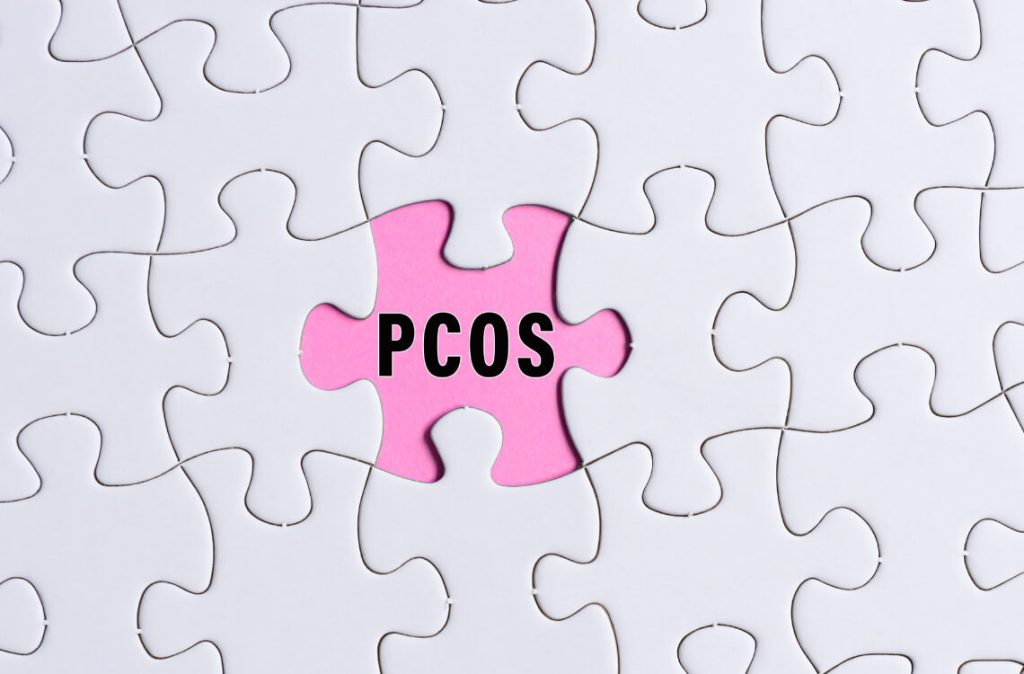PCOS, also known as a polycystic ovarian syndrome, affects one in ten women.
It is a common condition that affects the ovary of women and does not discriminate against any race or ethnicity.
It usually develops between the ages of 20 and 30.
However, it can start as soon as a girl gets her first menstrual period, and your young daughter could be one of them.
Expert doctors are still trying to figure out what causes PCOS.
But one thing is for sure: they know that it is closely related to a hormonal imbalance in a woman’s or a girl’s body.
In this condition, the ladies produce more androgens than they should.
According to research, their bodies produce too much insulin, signalling the ovaries to produce more male hormones.
Most cases of PCOS run in families, indicating that it can also be inherited genetically.
What Happens If Your Daughter Has PCOS
As described by Nemours TeensHealth, higher levels of androgens that occur in PCOS can obstruct the development and release of eggs.
Sometimes cysts (small sacs filled with liquid) form in place of the eggs maturing.
The cysts then grow inside the ovaries during ovulation instead of being released like an egg would during a normal cycle.
Girls with PCOS may not be ovulating or releasing an egg every month.
This causes many of them to experience irregular periods, a decrease or increase in volume, or even a complete cessation of their period.
Not only does PCOS make it more difficult for them to become pregnant once they reach reproductive age, but it can also lead to a lifelong health condition such as:
- Diabetes: more than 50% of ladies with PCOS develop type 2 diabetes or gestational diabetes during pregnancy
- Heart disease: ladies with PCOS are at a higher risk that increases with age
- High blood pressure: this condition can slowly damage the heart, brain, and kidney
- Sleep apnoea: those with PCOS usually have a disorder that causes breathing to stop while sleeping causing a lack of rest
- Stroke: blood clots that can cause a stroke
Some researchers show girls with PCOS are more likely to suffer from depression and anxiety, though no concrete reason found on how are they related.
PCOS Symptoms in Adolescent Girls
If you are concerned that your adolescent or teenage daughters may be suffering from PCOS, keep an eye out for the following signs:
-
Irregular or missed periods
It is paramount to start teaching your girls about menstrual cycles at a young age. Cover as much as you can about the cycle, especially in the first few years after your daughter gets her first period. It can take up to two years for the cycle to become stable, but teaching her early can help her become aware of her body changes and know when to be alert if something is out of the ordinary. Also, don’t forget to debunk period myths.
-
Weight gain
You might want to consider having your teen checked out if you notice that she is gaining weight, especially around the waist. PCOS can result in rapid weight gain over a short period of time, and your daughter may struggle to lose weight. Those with PCOS frequently struggle with obesity.
-
Hirsutism
Hirsutism is the term used to describe the development of course, dark hair where normally, women would only develop fine hair or none at all. So, try to observe any hair growth around your teenage daughter’s face. Another sign of PCOS is the potential for facial hair to occasionally appear on the chin and lip region. They may also have some hair growing on their belly, chest, or back.
-
Alopecia
People with alopecia experience hair loss from a single area of their head, face, or body as well as from other areas. You might notice thinning hair on your daughter’s head if she has PCOS, in addition to extra hair growing in places it shouldn’t. Another typical sign of PCOS is increased hair loss.
-
Insulin resistance
Some PCOC girls have insulin resistance, which means their bodies can produce insulin but cannot effectively use it, increasing their risk of type 2 diabetes. This condition is distinguished by darkened, thickened, or textured skin around the neck, armpit, and breasts.
-
Excessive acne and clogged pores
Many people might believe that acne is a common teen problem that is not too concerning. However, some researchers think that having excessive amounts of acne or clogged pores may be indicators of PCOS.
How to Help Your Daughter
If you notice your teenage girl exhibiting any of these symptoms, whether just one or two or all of them, you should take her to the doctor’s office and get an expert’s opinion.
Yes, there is currently no cure for PCOS, but the symptoms can be managed.
If your daughter has been diagnosed with PCOS, the following are some steps to manage living with PCOS, apart from taking supplements and medications:
- Change of diet – Limit intake of high-calorie foods and swap them out for fruits and vegetables
- Change of lifestyle – Sedentary lifestyle is not suitable for teenage girls with PCOS; try to motivate your daughter to work out
- Tweezing or waxing – You can allow your daughters to do this to avoid her feeling embarrassed in front of their peers
You may believe that your baby girl is too young for you to be concerned about her getting pregnant, but recognising PCOS signs and symptoms early can help you and your daughter figure out how to manage PCOS.
This will benefit her (and you) in the long run.
Disclaimer: The information provided in this article is for informational purposes only and should not be considered as medical advice from Motherhood. For any health-related concerns, it is advisable to consult with a qualified healthcare professional or medical practitioner.
For more insightful stories and fun recipes, stay tuned to Motherhood Story!
